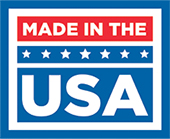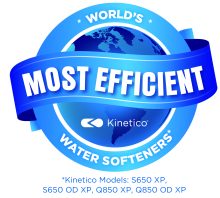The Connection Between Water Quality and Plumbing Maintenance Costs
For most people, the concept of water quality is limited to their drinking water. However, in reality, the water that flows through your home plays a much bigger role than just filling up your glass. It has a huge impact on your home’s plumbing system too. If the water supplied to your home is of poor quality, then it can lead to plumbing problems that may cost a lot of money in repairs. Let’s understand the connection between your home’s water quality and plumbing maintenance costs.
How Water Quality Impacts Plumbing
Oftentimes, water looks clean, but in reality, it contains many minerals, chemicals and contaminants that can affect the plumbing. Hard water contains large amounts of minerals, which can cause various issues in your home. These excess minerals can settle inside the pipes, causing the openings to narrow and reducing water pressure.
This lime scale buildup can also happen inside your water-using appliances, such as water heaters, washing machines, coffee makers, dishwashers, etc., making it much harder for them to operate and resulting in higher electricity bills.
Other than hard water minerals, water often contains disinfectants like chlorine, for example. While these disinfectants help kill bacteria, they can also cause the metal pipes to corrode. This corrosion may not be very prominent initially, only causing small leaks and discoloration of water. However, over time it can cause serious pipe damage, which may require even complete pipe replacement.
The Hidden Cost of Poor Water Quality
In the beginning, these problems might not seem too big, such as dealing with a little bit of lime scale, small leaks, or reduced water pressure. However, over a period of time, the consequences build up. You may find that you have to call plumbers too frequently for repairs, or that you need to replace appliances much sooner than expected.
As the impact on your budget isn’t always that prominent, you may not even connect these issues with water quality. However, if you pay close attention, most of these issues are usually caused by poor water quality. When you consider the frequent repair calls, increased energy bills, and frequent premature appliance replacements, you will notice that the costs add up to a lot. What may seem like small issues can turn into costly problems over the years.
How Water Filtration Helps You Save
If you want to protect your plumbing and save money, then you should invest in a water filtration system. These systems are specially designed for the effective removal of minerals, chemicals, and various other contaminants that may cause damage to your plumbing system. With them, you can get high-quality water throughout your home so your pipes won’t be constricted due to limescale and your water pressure would be optimal.
Even your appliances won’t be under pressure due to limescale buildup and will operate smoothly. Although investing in a filtration system may seem a little expensive initially, the benefits it offers in the long run are truly great. You will be able to make more savings with fewer plumbing repairs, increased appliance lifespan and lower electricity bills. Plus, you would be confident that your home’s water is clean, safe and of the highest quality.
Contact Rabb Water today for top-notch water filtration in Lafayette, IN. Our team is here to help you find the ideal solution for your home, so you can enjoy safe water while keeping your plumbing system protected.








